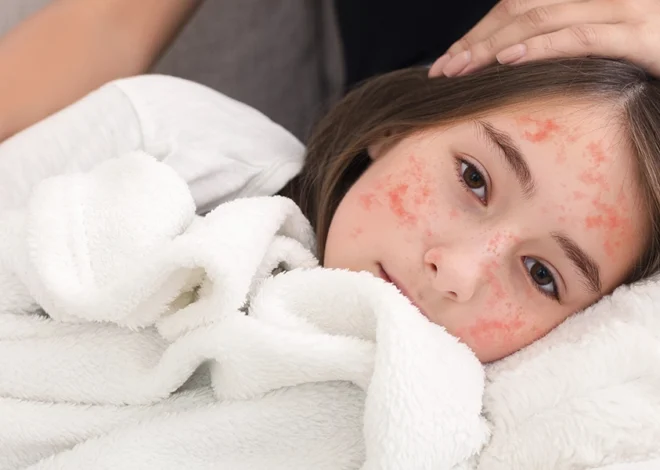If you have itchy or swollen skin with red, bumpy or scaly patches, you might have an allergic rash. People can get different types of allergic rashes; some might go away on their own, while others need treatment. No matter how much you want to, don’t scratch an allergic rash. If you do, you can develop a scar or an infection. An allergist is the best doctor to diagnose and treat allergic skin conditions.
Types
Different types of allergic rashes are hives, angioedema, contact dermatitis and eczema. Hives are red, itchy, raised areas on your skin that people usually get from food or drug allergies. Angioedema sometimes accompanies hives and produces swelling in the deeper layers of skin. Angioedema usually occurs in the eyelids, tongue, lips, feet and hands. You might get contact dermatitis by touching something like poison ivy. The result is itchy, red blisters where your skin touched the substance. Eczema is a scaly, red, itchy rash that is usually on the face, elbows or knees and is most common in people who have a family history of eczema.
Treatments
Hives and the accompanying angioedema usually go away on their own in a few days. Your allergist may prescribe antihistamines that can relieve symptoms while you wait for the rash to go away. Contact dermatitis won’t go away for 14 to 28 days, even with treatment. For relief, you can use cold compresses in the early, itchy stage. Your doctor may prescribe a corticosteroid cream. You can also try an over-the-counter hydrocortisone cream. With eczema, prevention is the main goal of treating it. But once you get it, you can apply cold compresses, creams or ointments. You can also take antihistamines and take an oatmeal bath.
Prevention/Solution
To prevent hives and angioedema, determine what your triggers are. An allergist can help you with that. Avoid your triggers to avoid getting hives. The longer your skin is in contact with the substance that causes contact dermatitis, the worse your condition will be. Besides poison ivy, other possible triggers are nickel, perfumes, cosmetics, dyes and certain ingredients, such as neomycin, in skin medications. You can sometimes prevent contact dermatitis by wearing gloves or long sleeves. Determining your eczema triggers and avoiding them is the best way to prevent it. Common triggers are dust, cat dander, sweating, wool and certain soaps that dry your skin. Sometimes, stress can cause eczema. Food can also be a trigger.
About Allergists
An allergist specializes in allergies, asthma and autoimmune diseases. Once you get on the right treatment plan with the help of an allergist, you can prevent and treat allergic rashes. You can minimize suffering and learn how to manage your condition.
Emergency Treatment
You need to call 911 if the rash is making you short of breath, your throat feels tight, your face is swollen or if your child has a purple rash that resembles a bruise, because this could indicate a childhood illness. Call your doctor if you have a fever, sore throat, joint pain or red streaks. If the rash occurs after taking a new medicine, call your doctor before you change or stop taking your medication.





